Mozambique: Ana Maria Gemo appointed Presiding Judge of Administrative Tribunal
Watch: President Nyusi warns of possible ‘tougher measures’ against Covid-19 in Mozambique
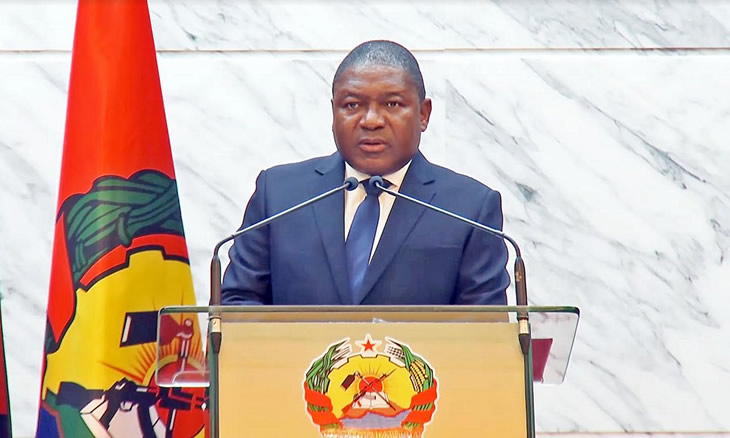
Photo: O País
The president of Mozambique, Filipe Nyusi, warned on Friday that it might be necessary to implement tougher measures under the state of emergency to prevent the spread of the new coronavirus that causes Covid-19, if some people continue to flout restrictions already in place, particularly in terms of limiting people’s movements.
“Two weeks after the extension of the state of emergency, the failure to comply with the measures frustrates the expectation of Mozambicans, which may force the government to decree, in the near future, tougher measures than the current ones,” the president said in an address to the nation.
The state of emergency has been in force since 1 April, having been decreed until the end of that month and subsequently extended until the end of May.
In his address on Friday, the president appealed again today for people to observe physical distancing and other rules.
“Only with responsible behaviour can we avoid a worsening of measures” and see a “gradual return to normal life,” he said. “The next fifteen days are decisive for us to determine how we will be after this second stage.”
He added that “this is not yet the time to relax the measures.”
An exception was made on Friday only for the return to training of competitive athletes in preparation for the Olympic Games.
Nyusi went through the list of measures imposed under the state of emergency, including the recommendation that everyone stay at home where possible. He cited the failure by many people in markets to use face coverings, which can be seen on public transport and in most other places, groups of children in the streets, although all school classes have been suspended in order that they may stay at home, as well as gatherings organised behind closed doors by religious congregations.
The president also complained about an increase in the number of people violating quarantine rules and was especially critical of the lack of respect for the recommendation to limit movements within the country, saying that there was less movement within the country and in cities at the end of March than there is now.
“These data indicate trends back to normal mobility, contrary to the recommendation of being at home,” he said. “Be aware that Covid-19 is among us and the failing of one can infect the other.”
Nyusi said that with the declaration of the state of emergency, “another channel of transmission of the effects” of the pandemic on the country’s economy had been opened, in a reference to job cuts and the resulting “negative impact on consumption and uncertainty about the future”. He cited the “monetary, fiscal, customs and economic” measures taken by the government to mitigate these impacts, as well as programmes to support employment and social security.
However, he issued a caveat: “Let us all be aware that these measures would never be enough to rebuild our economy, but we cannot give what does not exist or does not abound.”
The president’s address to the nation was broadcast live on public television at 5.20 p.m. local time, right after the release of the latest figures on the epidemic by the health authorities.
The country has so far had 119 confirmed cases of infection by the new coronavirus, with no deaths and 42 patients having recovered so far.
Worldwide the pandemic has already caused more than 302,000 deaths and infected more than 4.4 million people in 196 countries and territories. More than 1.5 million patients are deemed to have been cured.


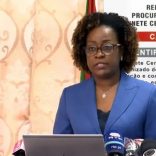
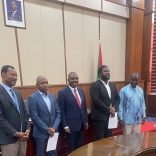
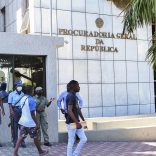

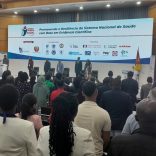
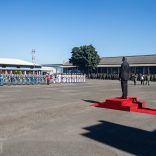





Leave a Reply
Be the First to Comment!
You must be logged in to post a comment.
You must be logged in to post a comment.